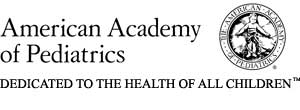The American Academy of Pediatrics (AAP) has issued new immunization
recommendations for college students. The new policy statement is published in
the December 2000 issue of Pediatrics, the journal of the AAP.
AAP has issued the new guidelines because college students, especially
freshmen living in dorms, are at increased risk of contracting meningococcal
disease. The disease can be life threatening, and 60 percent or more of the
cases can potentially be prevented with a currently available meningococcal
vaccine.
According to information cited by the AAP, an estimated 2,400 to 3,000
cases of invasive meningococcal disease occur each year in the United States.
The numbers of reported cases of meningococcal disease in 15- to 24-year-olds
and outbreaks of meningococcal serogroup C disease, including outbreaks in
schools and other institutions, have increased in the past decade. Many
colleges are now requiring the meningococcal immunization for school entry.
Students should check with their college about immunization requirements.
The new AAP recommendations state:
- Students entering college, especially those who will be living in
dormitories, and their parents should be informed during routine pre-college
enrollment medical exams about the increased risk of meningococcal disease
and the potential benefits and limitations of the vaccine.
- Students should consider immunization in view of the risk of disease and
the potential benefits of immunization. Although the risk is greatest for
college freshman who will be living in dormitories, older college and
graduate students living in dormitories also may choose to be immunized.
- Physicians and other health care professionals providing care to college
students, including those who will be enrolling in college within the
following year and who may live in dormitories, should vaccinate students
who wish to be immunized or refer them to an easily accessible location
where they can be immunized.
- College and university health services should inform students of the
risk of meningococcal disease and potential benefits of immunization, and
should facilitate implementation of educational programs and immunization
services, including making the vaccines available on campus.
- Immunization is not recommended for students who will not be living in
dormitories because they are not at increased risk of meningococcal disease
relative to persons of similar age in the rest of the population. But these
students may be given the vaccine if they request it.
- Students who were immunized as freshmen do not need to be reimmunized
each year while in college; however, if students were immunized three to
five years previously and are or will be in high-risk circumstances (such as
traveling to geographical areas with a high rate of meningococcal disease),
they should consider being reimmunized.

